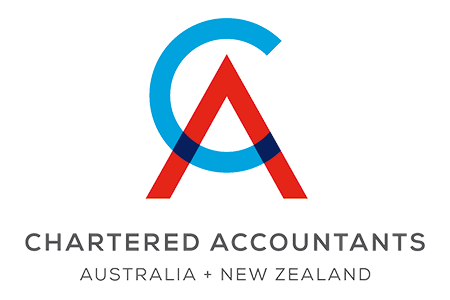We Know Business
& We Care
This is paragraph text. Click it or hit the Manage Text button to change the font, color, size, format, and more. To set up site-wide paragraph and title styles, go to Site Theme.
Trusted Chartered Accountants and Business Advisors Since 1964
Tax Facts
Gift Duty
The government abolished gift duty for dispositions of property made on or after 1 October 2011. This means that
- Gift duty will not be payable for dispositions of property made on or after 1 October 2011
- Gift statements will not need to be filed for dispositions of property made on or after 1 October 2011
- However, gift duty and gift statements will remain due for dispositions of property made before 1 October 2011
GST or Goods and Services Tax
GST is a tax on the supply of goods and services in New Zealand by a registered person on any taxable activity they carry out. The rate for GST is 15%, although it can be zero-rated for exports. Certain supplies of goods and services are ‘exempt supplies’ and exempt from GST. These include:
GST and E-Commerce
Sale of Physical Goods via the Internet? If a GST-registered person sells goods via the internet and the goods are physically supplied to a customer in New Zealand, GST is chargeable at 15%.
PAYE on Salaries & Wages
Pay As You Earn (PAYE) is the basic tax taken out of your employee’s salary or wages. The amount of PAYE you deduct depends on each employee’s tax code.
KiwiSaver
All New Zealand residents and people entitled to live here permanently up to the age of 65 are eligible for KiwiSaver. All new eligible employees must be automatically enrolled in KiwiSaver. However, some employees are exempt from automatic enrolment. These include:
- Those under 18 years of age
- Casual agricultural workers or Election Day workers
- Private domestic workers
- Casual and temporary employees employed under a contract of service that is 28 days or less
Provisional Tax
Provisional tax is not a separate tax but a way of paying your income tax as the income is received throughout the year. You pay installments of income tax during the year, based on what you expect your tax bill to be. The amount of provisional tax you pay is then deducted from your tax bill at the end of the year.
Resident Withholding Tax (RWT)
Resident Withholding Tax (RWT) is a tax deducted on interest earned from investments and bank accounts. The investment organisation or bank deducts this tax when they credit interest to you. Companies may also deduct withholding tax from dividends paid to shareholders.
If you receive interest as income, you need to:
- Provide the interest payer with your IRD number
- Elect the tax rate at which this is to be deducted by them
- The RWT tax rate used will vary for individuals and different types of business entity
- For more information on RWT, the tax rate and how this tax applies to interest and dividends, refer to the IRD Website
Tax facts supplied by CCH
Tax Credits (Formerly Rebates)
If you are an individual (not a company, trust, or partnership) who earned taxable income during the period being claimed for and were in New Zealand at any time during the tax year (including non-residents). You may qualify for a tax credit for:
Taxpayer Penalties
Taxpayers who do not meet their tax obligations may face penalties or interest charges. To avoid such charges, you should pay the full amount of tax you owe by the due date. The main kinds of charges for failing to meet tax obligations are:
Tax Facts
ACC Premiums
Employer invoicing by ACC takes place from June each year and is based on employee earnings for the year ending 31 March.
Depreciation Allowances
Depreciation allows for the wear and tear on a fixed asset and must be deducted from your income. Generally, you must claim depreciation on fixed assets used in your business that have a lifespan of more than 12 months.
To find out more on how to calculate depreciation on a business asset, please give us a call or refer to the IRD Depreciation Rate Finder on the IRD website.
Entertainment
Entertainment expenditure is limited to a 50% deduction if it falls within the following:
- Corporate Boxes
- Holiday Accommodation
- Pleasure Craft
- Food & beverages consumed at any of the above or in other specific circumstances.
There are several exemptions from these rules; please contact us if you are unsure or see the IRD Entertainment Expenses (IR268) booklet for more information.
Fringe Benefit Tax
Fringe Benefits Tax (FBT) is a tax on benefits that employees receive as a result of their employment, including those benefits provided through someone other than an employer.
Working for Families Tax Credits
Working for Families tax credits are available to families with dependent children aged 18 years or younger. These are refundable, meaning that if the credits exceed the person’s income tax liability, they can be refunded to the taxpayer.
The Working for Families tax credits are made up of the following:
- Family tax credit credits of tax paid for each dependent child in work
- Tax credit available to couples who work at least 30 hours a week between them and,
- to sole parents who work at least 20 hours a week
- Parental tax credit available to working families with a newborn child who do not receive paid parental leave or income-tested benefits
- Minimum family tax credit this credit ensures a minimum annual family income for those families falling below the threshold
Inland Revenue administers the Working for Families tax credits; however, taxpayers who receive an income-tested benefit will receive payments from Work and Income.
For more resources or assistance, call 09 303-2200 (Auckland) or 09 238-8077 (Pukekohe) today.

